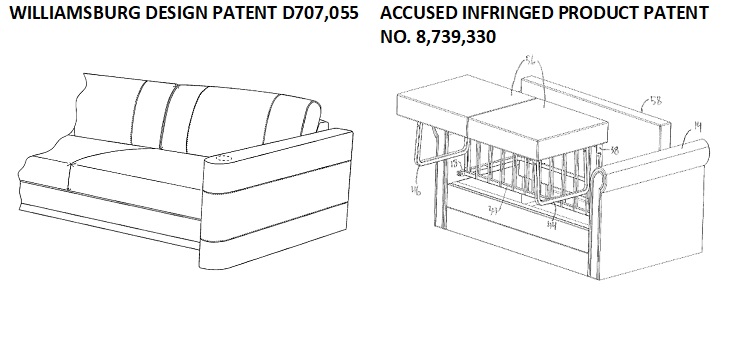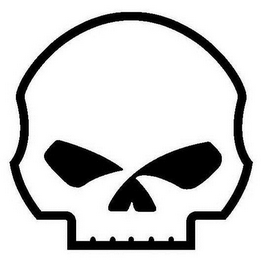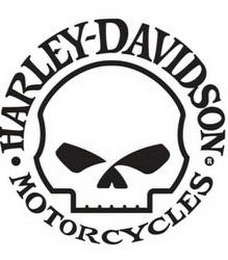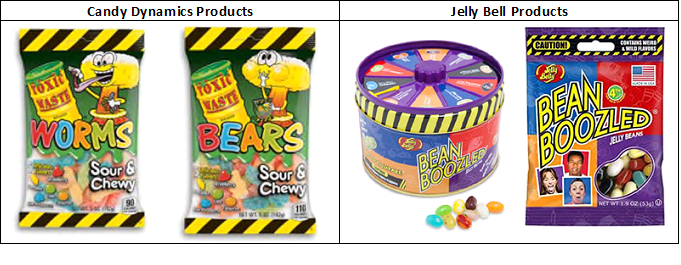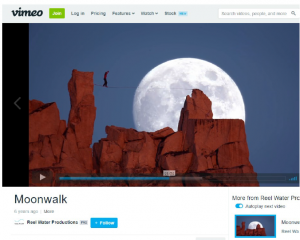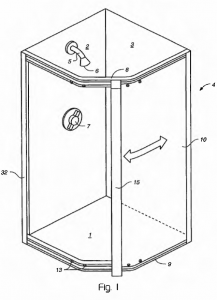South Bend, Indiana – Attorneys for Plaintiff, Williamsburg Furniture, Inc. (“Williamsburg”) of Nappanee, Indiana originally filed suit in the District Court of Delaware seeking a declaratory judgment of non-infringement against Defendant, Lippert Components, Inc. (“Lippert”) claiming Lippert’s United States Patent No. 8,739,330 (the “‘330 Patent”) is invalid and/or unenforceable. Williamsburg is also seeking judgment for false advertising and unfair competition as it claims Lippert informed Williamsburg’s customers of the alleged patent infringement and caused Williamsburg to lose sales. Upon motion by Lippert, the case was transferred to the Northern District of Indiana.
According to the Complaint, the invention claimed in the ‘330 Patent for a tri-fold sofa was publicly disclosed, in public use, on sale, or otherwise available to the public through third parties not associated with the ‘330 invention more than one year prior to the filing of the provisional patent application. For instance, Patrick Hutmacher claims he purchased a tri-fold chair/bed in August 2010 from a furniture store in McHenry. One month later, a person from the McHenry furniture store allegedly brought a second tri-fold chair/bed to Mr. Hutmacher at his place of employment, Flair Interiors, Inc. (“Flair”), in an attempt to supply the products to the company.
 Indiana Intellectual Property Law News
Indiana Intellectual Property Law News


